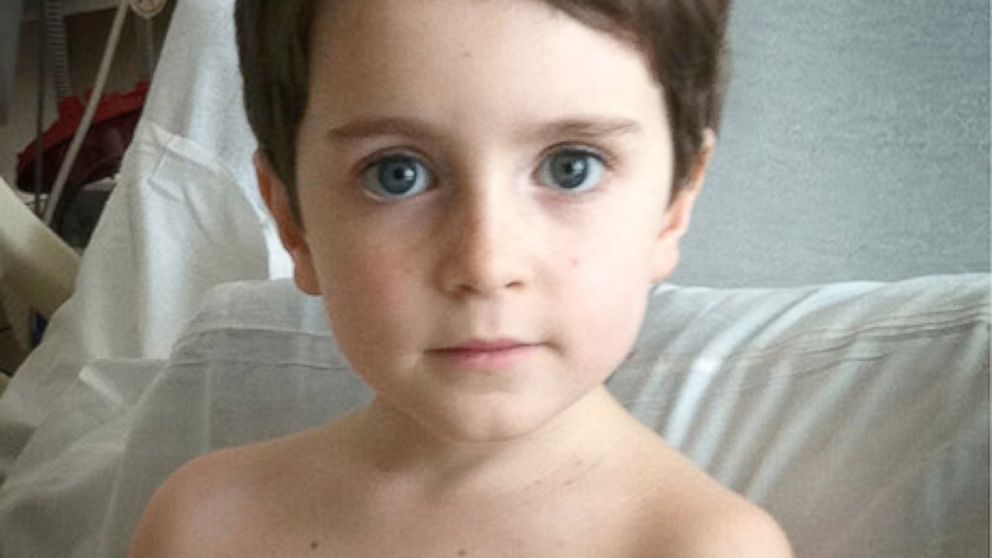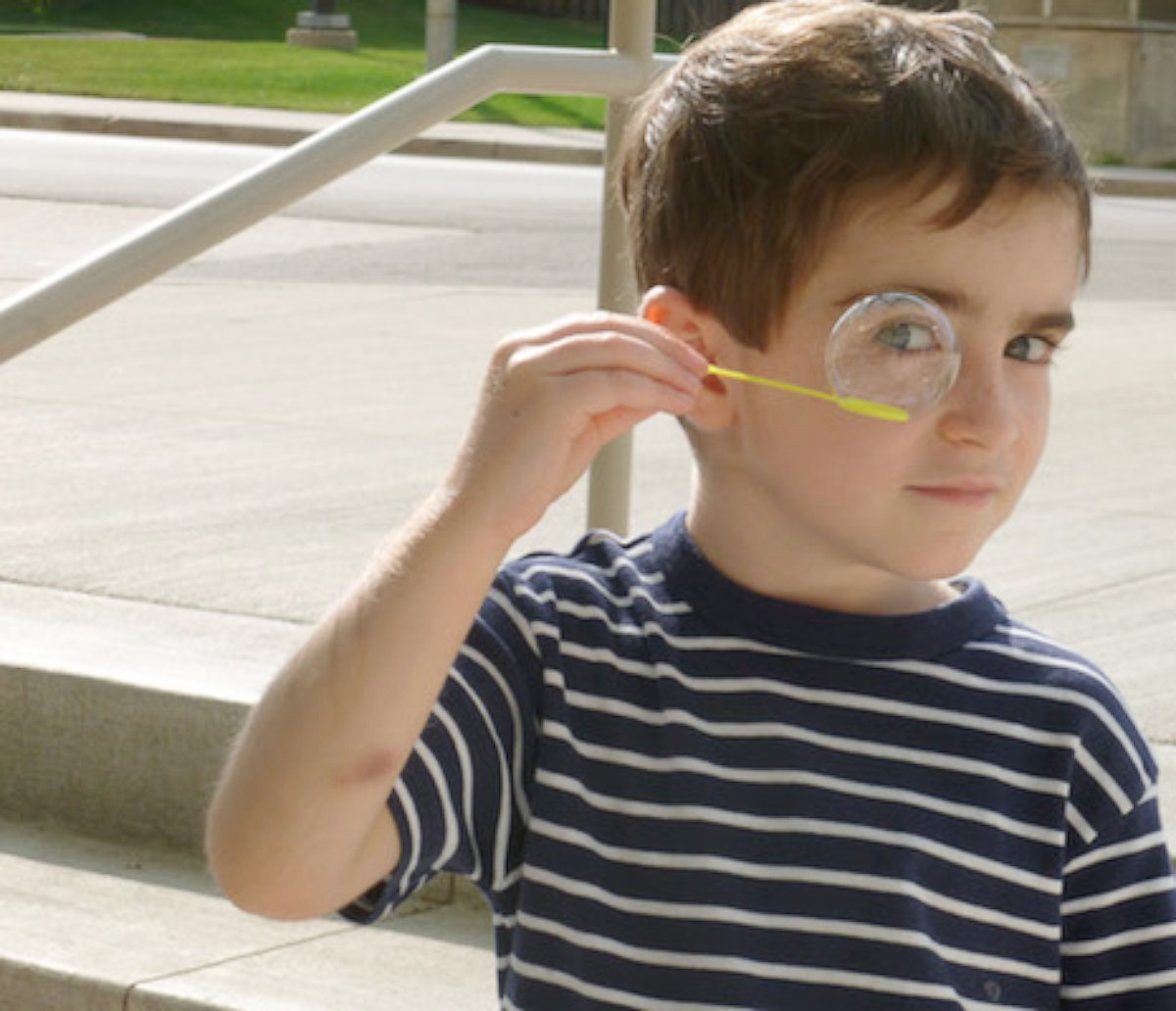American 8-year-old Meets British Donor Who Saved His Life
Jake Larkin, from San Francisco, was diagnosed at age 5 with a rare condition.

— -- An 8-year-old American boy flew to Britain with his family this weekend to meet the woman who saved his life by donating bone marrow to him nearly three years ago.
Jake Larkin, from San Francisco, was diagnosed at age 5 with a rare condition called severe aplastic anemia, a condition in which his bone marrow did not make enough red blood cells.
To survive, he needed a bone marrow transplant -- and it came from a 59-year-old teacher living in Market Harborough, a small town in Leicestershire, England.
"I've been on the registry of donors for 30 years and this was the first phone call I received," Jane Theobald told ABC News, adding, "I was a bit taken aback, but I didn't hesitate at all."
In September 2012, Theobald traveled to Sheffield to make the donation, despite knowing nothing about the person she was donating to.
Patient and donors have to remain anonymous for two years, according to the Anthony Nolan registry rules. Theobald simply received a letter saying the patient had survived.
However, in September 2014, Theobald received an anonymous letter from Jake’s parents thanking her for her donation.
“Your gift saved the life of a little boy, but so much more," the letter read. "You saved the hearts of so many people who love that little boy. And you did save his life, as surely as if you had scooped him up off of train tracks in the shadow of a speeding train."

"It was very moving, heart-wrenching letter," Theobald said, who noticed the author must have been American because she used the word "train-tracks" (it's rail-track in the U.K.). "It had never occurred to me that my donations would go abroad!"
Eventually, Theobald received a book from Jake's parents, Kimberly Cluff and Bob Larkin, which gave her an insight into what they had been through.
Both families wanted to meet each other and the registry connected them.
"It was very emotional the first time we spoke," Theobald said, "I told them I had done nothing but make a donation -- they're the ones who had had to fight for their son".
A meeting was organized between both families from June 6 to June 8.
"I was very nervous," Cluff, 45, told ABC News. "Jake was behind us when we got off the train and he just walked towards her and gave her a big hug."
"We tried not to have expectations but in reality the meeting was completely amazing," Cluff said. "They were so warm, kind and humble. It was almost as if they couldn't accept us saying thank you."
Cluff said the meeting with their son's donor gave them closure. "It helped us close the journey we've been on with Jake," she said. "We feel at peace."
"The most powerful moment was when someone asked Jake what is was like to meet Jane, and he simply responded: "I feel free."
Next week, Jake will be celebrating his 1,001st day since the transplant, and his mom said they'd be celebrating with apple pie.




